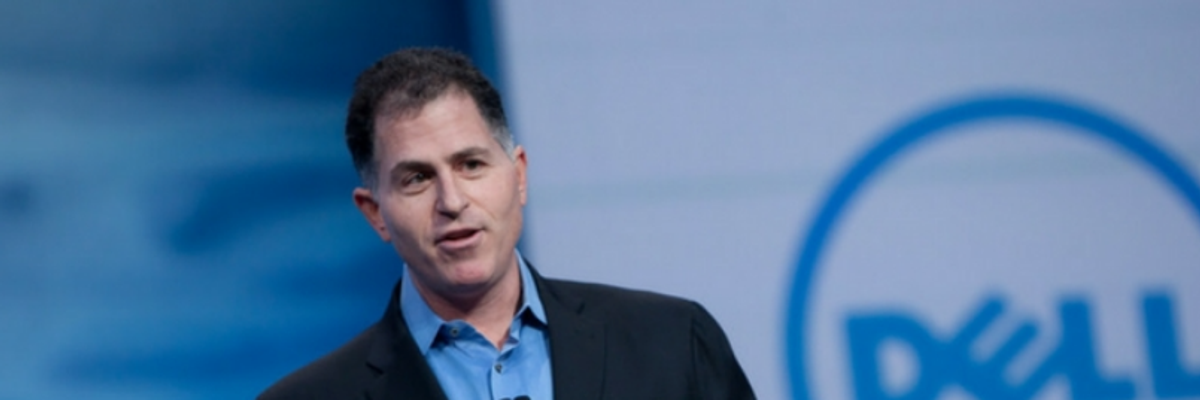At the recent World Economic Forum in Davos, Switzerland, a panel moderator asked Michael Dell, America's 17th-richest man, what he thought about the idea of raising the top marginal tax rate to 70 percent.
This idea has been in the headlines since Rep. Alexandria Ocasio-Cortez floated it in a 60 Minutes interview on January 6 as a way to pay for a Green New Deal.
The Davos panel found the question hilarious. When the laughing died down, Dell, the founder and CEO of Dell Technologies, dismissed the idea out of hand, claiming it would harm U.S. economic growth.
"Name a country where that has worked, ever," the mega-billionaire said.
Dell knows a lot about computers, but he doesn't seem to know much about history. Otherwise he'd know that one country where such a top marginal tax rate that high -- and even higher -- has worked is the United States.
Back in the 1960s, our top marginal tax rate ranged from 70 percent to 91 percent. That was also the decade when our country had its highest average economic growth rate.
Back in the 1960s, our top marginal tax rate ranged from 70 percent to 91 percent. That was also the decade when our country had its highest average economic growth rate.
More importantly, it was an era when workers generally shared in the country's prosperity. Since the 1970s, wages for most U.S. workers have flatlined, even as productivity has steadily increased. But back in the 1950s and 1960s, wage growth kept pace with productivity.
High top tax rates are one reason economic gains were shared more equitably. Business leaders back then didn't bother demanding insanely large paychecks because much of that pay would've been taxed away anyway. That left more money for workers and productive investment.
Revenue from fair taxes on the rich also helped pay for public works projects that created good jobs and built the infrastructure for a strong economy.
But we don't need to just look back at history. In the real world right now, Sweden has a 70 percent marginal tax rate and one of the world's most vibrant economies. Ordinary Swedes enjoy universal health care, free college, and more than a year of paid parental leave.
And on indicators that business leaders like Michael Dell should care about because they make for a strong labor pool - like engineers per capita and public health - the Swedes kick American butt.
In 1953, the CEO of GM, Charles Wilson, famously said that "what was good for our country was good for General Motors, and vice versa." Back then, there was a lot of truth to that.
Big U.S. corporations contributed much more to the country through taxes and good jobs. Wilson himself paid more than 70% of his total income in taxes in 1950.
Today, at Dell Technologies, which makes most of its computers outside the United States, what's good for the company is certainly very good for Michael Dell. Is it good for the country? That's not so clear.




